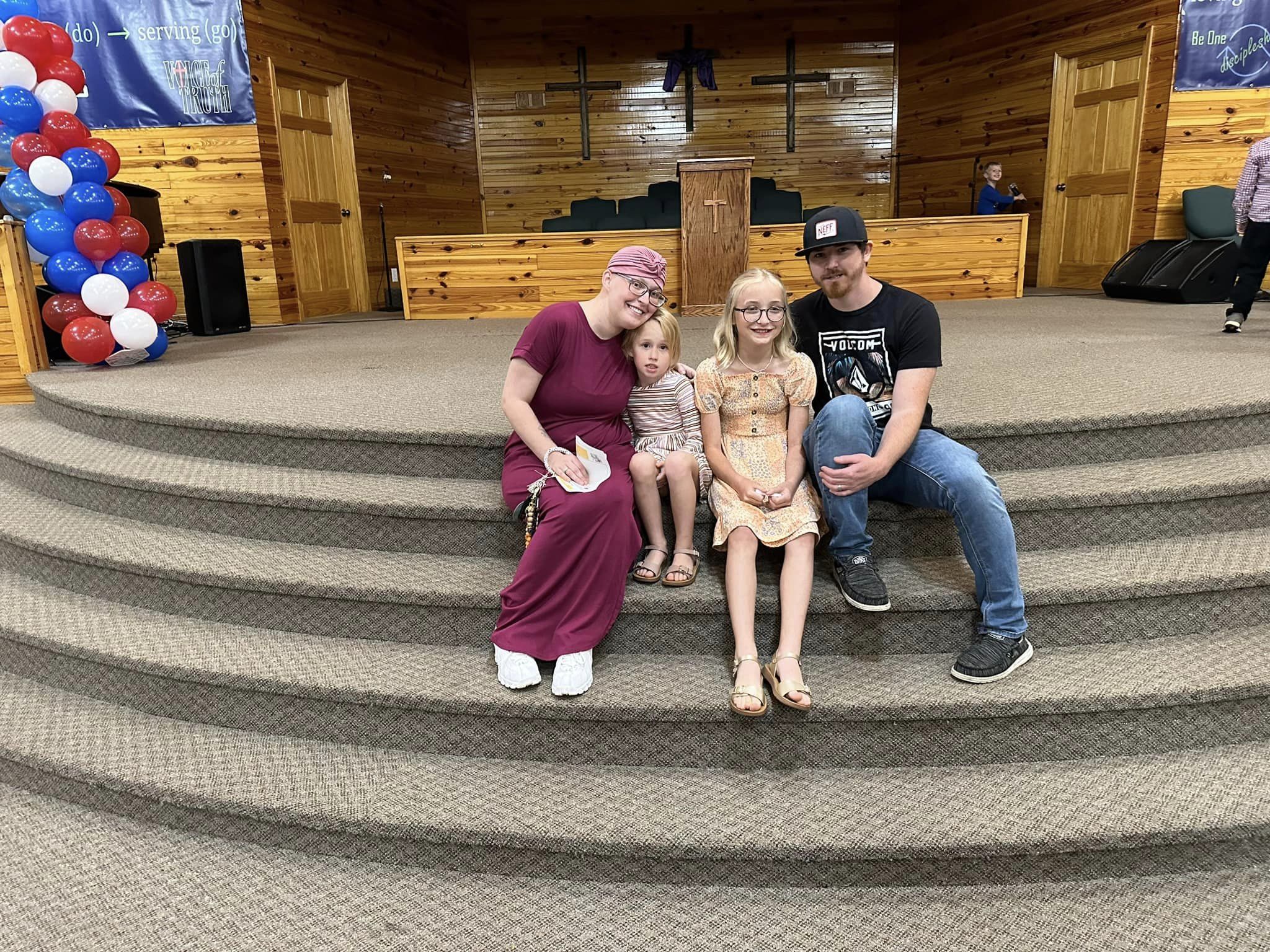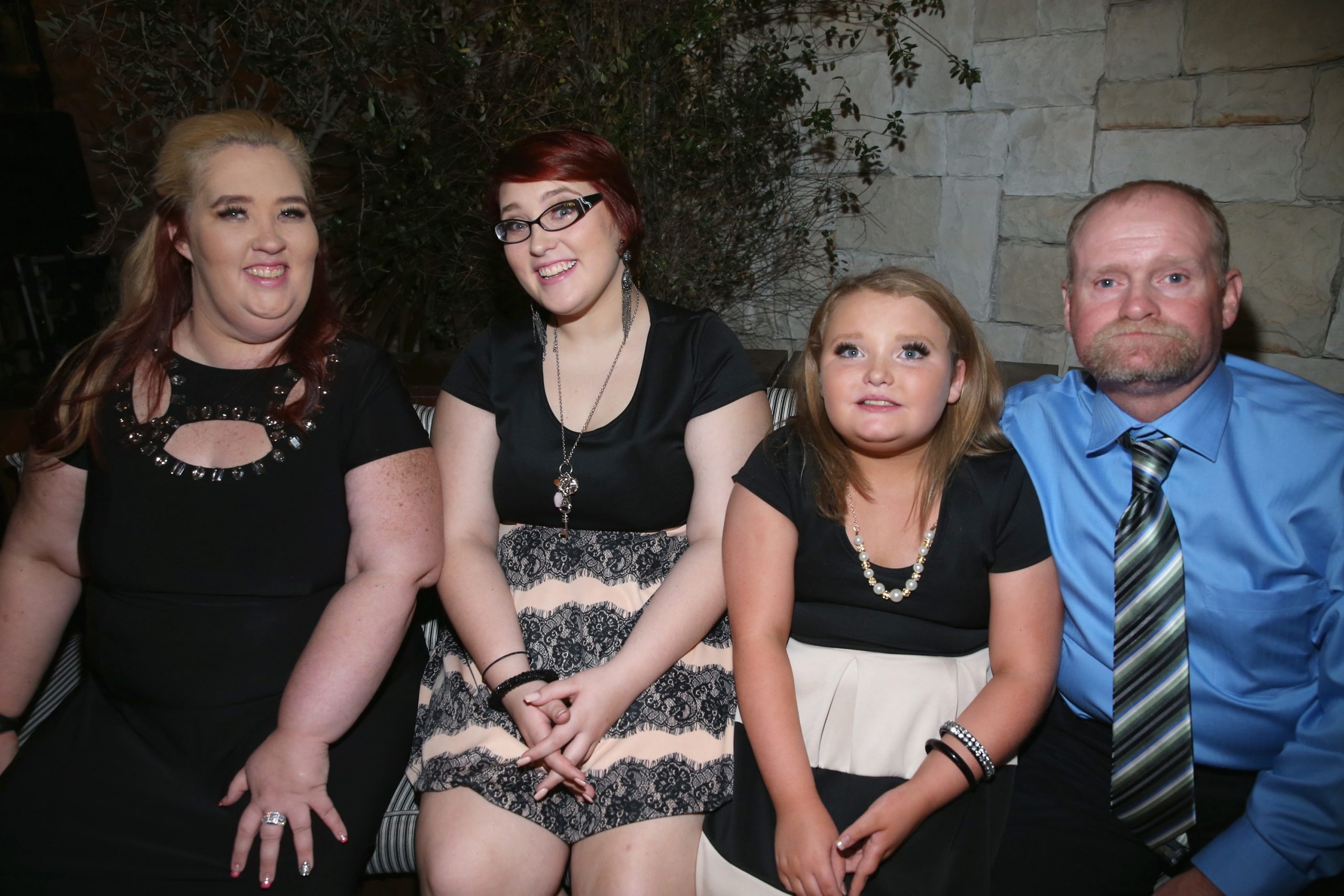Supporting a Loved One Battling Cancer
- "Toddlers and Tiaras" reality TV star Anna "Chickadee" Cardwell, 28, is getting much-needed support from her family while battling stage 4 adrenal carcinoma (ACC).
- Adrenal Carcinoma, which is also called adrenocortical cancer, is a rare cancer that starts in one or both of the small, triangular glands (adrenal glands) located at the top of your kidneys. Symptoms usually include stomach pain.
- Having family support before, during, and after a cancer diagnosis is an important part of a cancer patient's journey to recovery.
- Parents living with cancer are encouraged to be as honest with their children as possible when explaining their condition with language that they can understand at their age.
The family of reality TV star Honey Boo Boo from the popular show, "Toddlers and Tiaras" is rallying around one of their own amid a tough stage 4 cancer battle. Anna "Chickadee" Cardwell, 28, is undergoing treatment for adrenal carcinoma (ACC), a rare type of cancer. While her family admits the cancer journey can be "scary" at times, they remain hopeful.
"She's handling it pretty good," Chickadee's mother June "Mama June" Shannon, 43, said in an interview with Entertainment Tonight updating fans on her daughter’s cancer journey.

"We don't know what to expect because the cancer is very aggressive and it grew from nothing to something huge on the left side of her body really fast," Alana Thompson said.

The reality TV show that made Cardwell's family household names began in 2011. The program gave viewers a behind-the-scenes look at the life of child beauty pageants. The show's popularity launched a spinoff, "Here Comes Honey Boo Boo," which ran for four seasons until 2017.
"Mama June" also has her own spinoff show airing on WE TV. Her daughter's cancer battle has been part of the show's ongoing storyline.
Cardwell's other sister Lauryn "Pumpkin" Efird, 23, said "Chickadee's" cancer journey so far has impacted her appearance but not her ability to enjoy everyday life.
"She can still go to the grocery store, she can drive herself, she's still able to take the kids to and from places…A lot of people thought that it was gonna make her sick and stuff like that, [but] she's able to bounce back pretty quick," Efird said.
Cardwell is preparing for immunotherapy which involves using the body's own immune system to target cancer cells. Immunotherapy has shown great promise to help treat a wide range of cancers according to Dr. Steven Rosenberg Chief of Surgery at the National Cancer Institute.
"Using a patient's own immune cells is a very complex way to treat a cancer," Dr. Rosenberg said. His team has developed methods for genetically modifying a patient's own immune cells "to recognize the cancer in a new way" and to kill it. There have been major breakthroughs.
WATCH: The promise of immunotherapy for cancer treatment.
Cardwell recently completed chemotherapy which involves drugs designed to kill cancer cells. Chemotherapy can be given orally or intravenously. Although chemo is a common treatment for cancer patients, it comes with side effects, including hair loss.
"Anna doesn't have hair, she has no eyebrows, she doesn't have any hair on her arms or anything like that," Efird added.
Hair loss usually begins about three to four weeks after beginning chemotherapy and continues throughout treatment. It happens because this treatment targets quickly dividing cells throughout the body. That includes cancer cells, but also hair cells.
Fortunately, hair loss during cancer treatment is not all bad news. Most people can expect regrowth four to six weeks after treatment. However, when your hair grows back you may notice some changes in its color and texture. If losing your hair is a concern for you ahead of cancer treatment, know you have options like wigs, hats, wraps, and scarves, among other things.
WATCH: Living With Cancer Coping With Hair Loss & the Anxiety it Brings.
"For cancer patients losing one's hair can be unbelievably stressful. To start with, the dread of losing one's hair can lead to some sleepless nights and feelings of anxiety," Dr. Samantha Boardman, a New York-based psychiatrist, and author, told SurvivorNet.
More on Side Effects from Cancer Treatment
- “It’s Only Temporary”: Dealing With the Side Effects of Cancer Treatment
- Adjusting Chemo to Mitigate Side Effects
- After a Stem Cell Transplant: Recovery and Side Effects
- Are the Side Effects of Androgen Deprivation Therapy Worth the Risk?
- Chemotherapy for Ovarian Cancer — Noticing Your Side Effects Cycle
- Chemotherapy for Ovarian Cancer: Managing Common Side Effects
- Chemotherapy Side Effects – Hair Loss
Cardwell also has children of her own. Her sisters said while the 10-year-old "is aware" they don't think she "fully understands" her mom's health prognosis.
Sharing a cancer diagnosis with children can be tough especially if you're a parent that's battling cancer. There is no single way to go about discussing cancer with children, as widower John Duberstein explains with SurvivorNet. He lost his wife to breast cancer, but the couple discussed her cancer with their children before she passed away.
WATCH: Talking to kids about cancer.
"I think it's really important to be open with the kids as much as you can, as much as you feel like they can handle," Duberstein explained.
"When Nina started to look less like a cancer patient, the kids started to make unspoken assumptions about where Nina stood," Duberstein said.
He went on to say as parents, they had to counter false narratives, which developed in their children's heads about their mother's prognosis. They had to gently remind them her cancer was not going away.
"It was hard for them to hear even though they'd already been prepared," he further explained.
If parents find themselves nervous before having this conversation, licensed clinical psychologist Dr. Marianna Strongin said children can pick up on their emotions, so it may help to check in with yourself beforehand.
"If at this moment, you are feeling scared, it might be helpful to calm and soothe yourself first before speaking to your child," she said.
"Having these conversations may bring up deep emotions you may have stowed away. There is nothing wrong with showing our emotions to children as long as we can remain calm and give them a sense of safety," she said.
Helping them feel safe can mean giving them tools and strategies to manage their feelings about the situation.
"Mama June," said the family remains hopeful and is taking it "one day at a time" because they understand the reality of Cardwell's prognosis since she's stage 4.
Supporting a Loved One Through Cancer
Anna "Chickadee" Cardwell's family indicates she's handling her ongoing cancer treatments well. However, patients can feel a wide range of emotions when confronted with a cancer diagnosis. Many may feel depressed, anxious, worried, overwhelmed, and even full of grief. Having support from your loved ones can help deal with these emotions.
WATCH: Seeking support after a diagnosis.
"Some people don't need to go outside of their family and friends circle. They feel like they have enough support there," New York-based psychiatrist Dr. Lori Plutchik tells SurvivorNet.
"But for people who feel like they need a little bit more, it is important to reach out to a mental health professional," she added.
Questions for Your Doctor
If you find yourself struggling emotionally to cope with your diagnosis, consider the following questions for your doctor or care team to help.
- How can I go about improving my outlook/mental health?
- Are there any activities I can do to encourage positive feelings?
- When should I seek other interventions if I'm still struggling?
- What are the steps to finding a different therapist if the one I'm using is not working out?
Learn more about SurvivorNet's rigorous medical review process.

